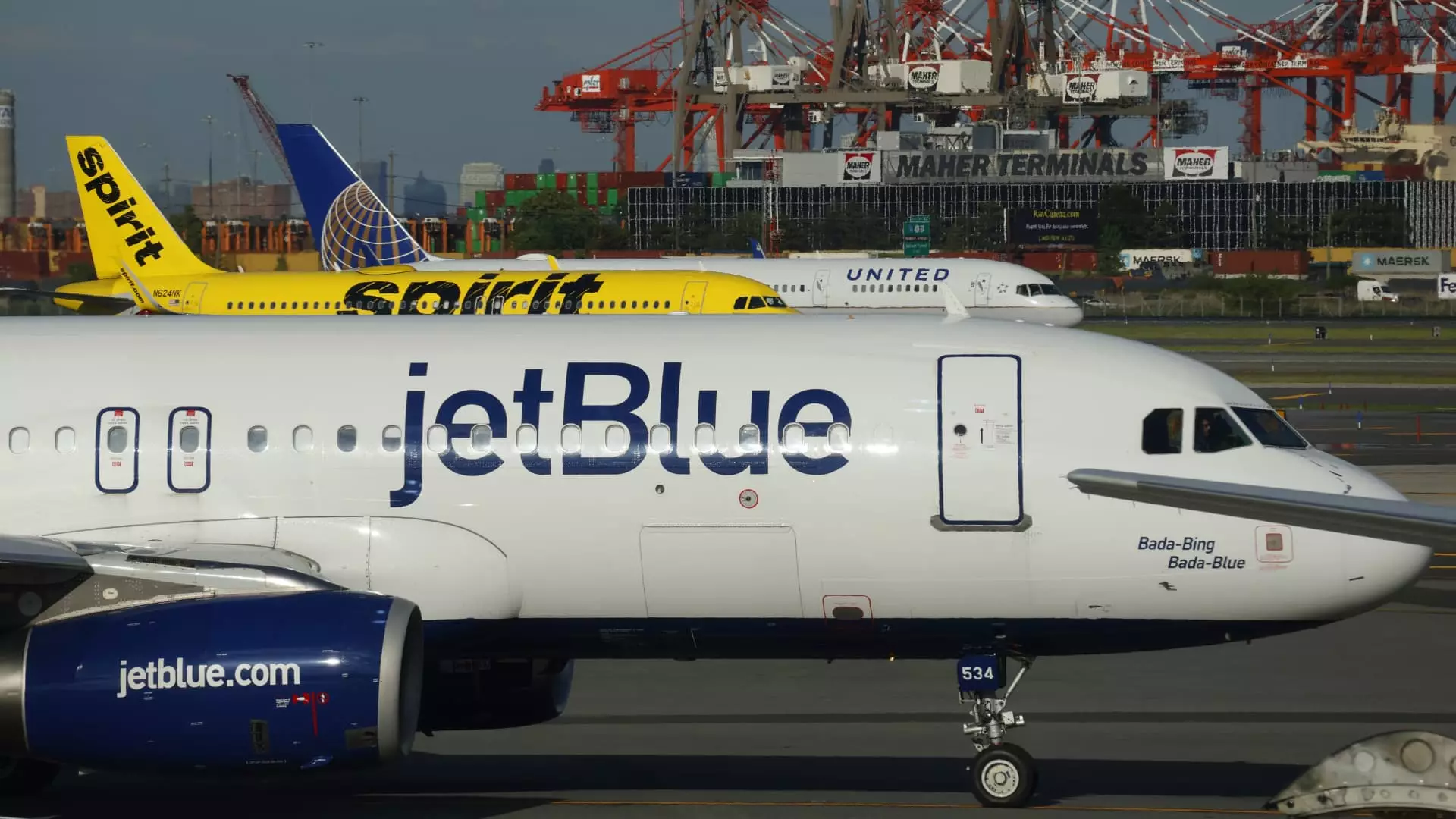Low-cost and deep discounter airlines are facing significant challenges in the current economic climate. These airlines, such as Spirit Airlines, JetBlue Airways, and Frontier Airlines, have struggled to maintain profitability in the face of increased competition and rising costs. Engine repairs have also played a role in impacting their bottom line, leading these airlines to rethink their approach to aircraft purchases.
One of the ways in which these airlines are responding to the current challenges is by deferring deliveries of new aircraft. This shift in growth plans is a strategic move to save costs and ensure a more sustainable path to profitability. Frontier Airlines, for example, has deferred 54 Airbus aircraft to at least 2029, citing an oversupply of planes in the market. The delay in aircraft deliveries is a result of years of previous delays, which have now accumulated and created a backlog for carriers.
JetBlue Airways estimates that it will save about $3 billion by deferring 44 Airbus A321 airplanes through 2029. This decision to extend aircraft leases and defer deliveries is part of a broader effort to reduce costs and streamline operations. The airline, along with others in the industry, is feeling the financial strain of grounded jets due to engine recalls, further complicating their growth plans.
Struggles of Spirit Airlines
Spirit Airlines, which has faced significant losses and a failed acquisition attempt by JetBlue, is also deferring aircraft purchases as part of its turnaround strategy. The airline reported an 11% drop in revenue and a substantial loss, leading to furloughs for pilots. The Pratt & Whitney engine recall has added to the financial woes of the airline, prompting it to defer all Airbus planes on order until at least 2030.
Despite the challenges faced by low-cost carriers, the global airline industry is still experiencing a scarcity mindset, particularly when it comes to fuel-efficient planes. Lease rates for popular aircraft models have hit record highs, indicating strong demand for new aircraft. Airbus and Boeing, the main suppliers of commercial planes, are grappling with production constraints and challenges in increasing output post-Covid.
As airlines navigate the complex landscape of aircraft purchases and deferrals, they are forced to reevaluate their growth strategies and financial viability. Executives at major airlines have acknowledged the impact of delayed deliveries on their hiring and growth plans, emphasizing the need to mitigate cost pressures. Southwest Airlines, for example, is seeking opportunities to address overstaffing related to delayed Boeing deliveries.
Low-cost airlines are facing a plethora of challenges in the current economic environment, forcing them to make tough decisions regarding aircraft purchases and growth plans. By deferring deliveries and reassessing their strategies, these airlines are striving to achieve long-term sustainability and profitability. The industry as a whole is experiencing a period of uncertainty and transformation, requiring careful navigation to adapt to the changing landscape of air travel.

